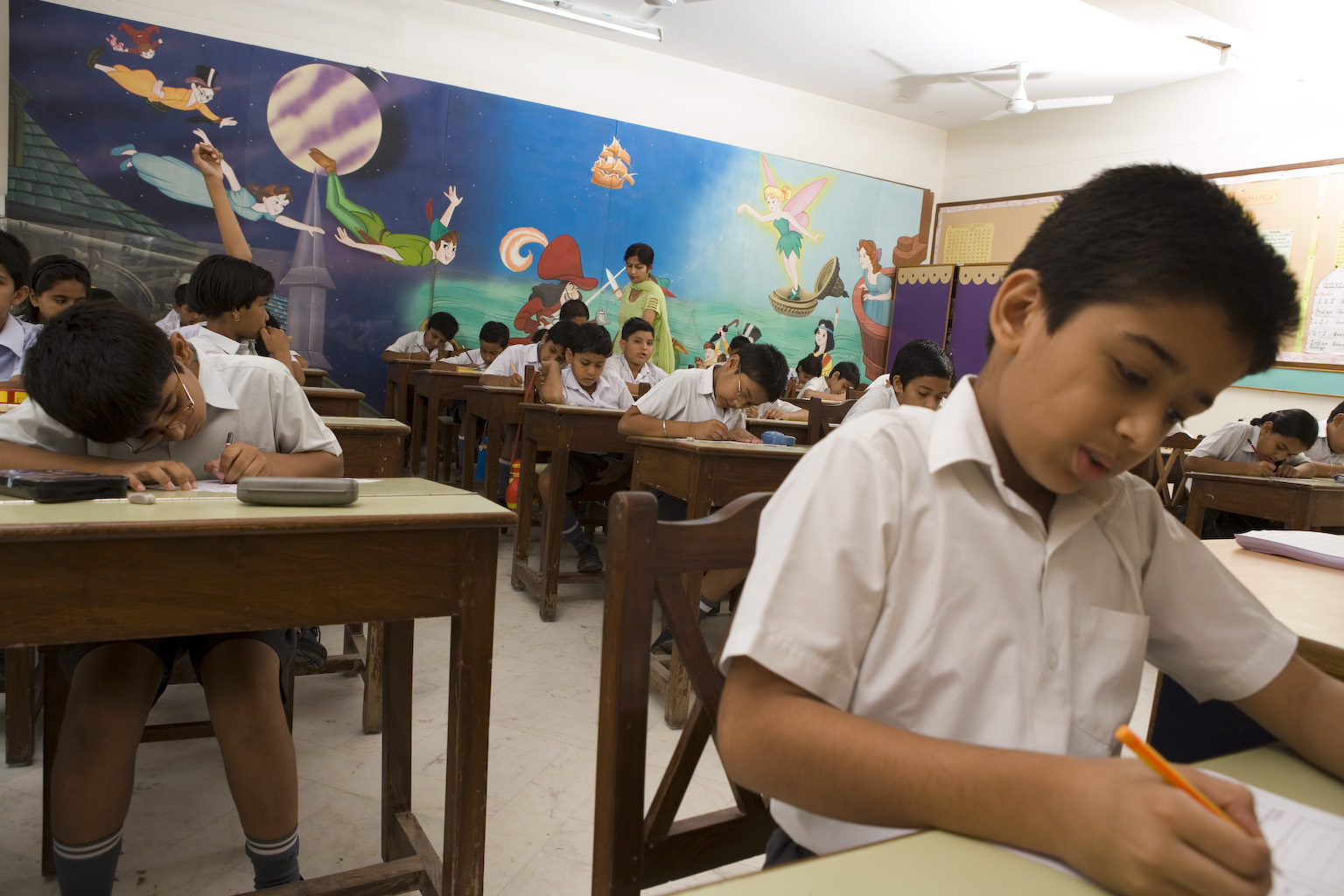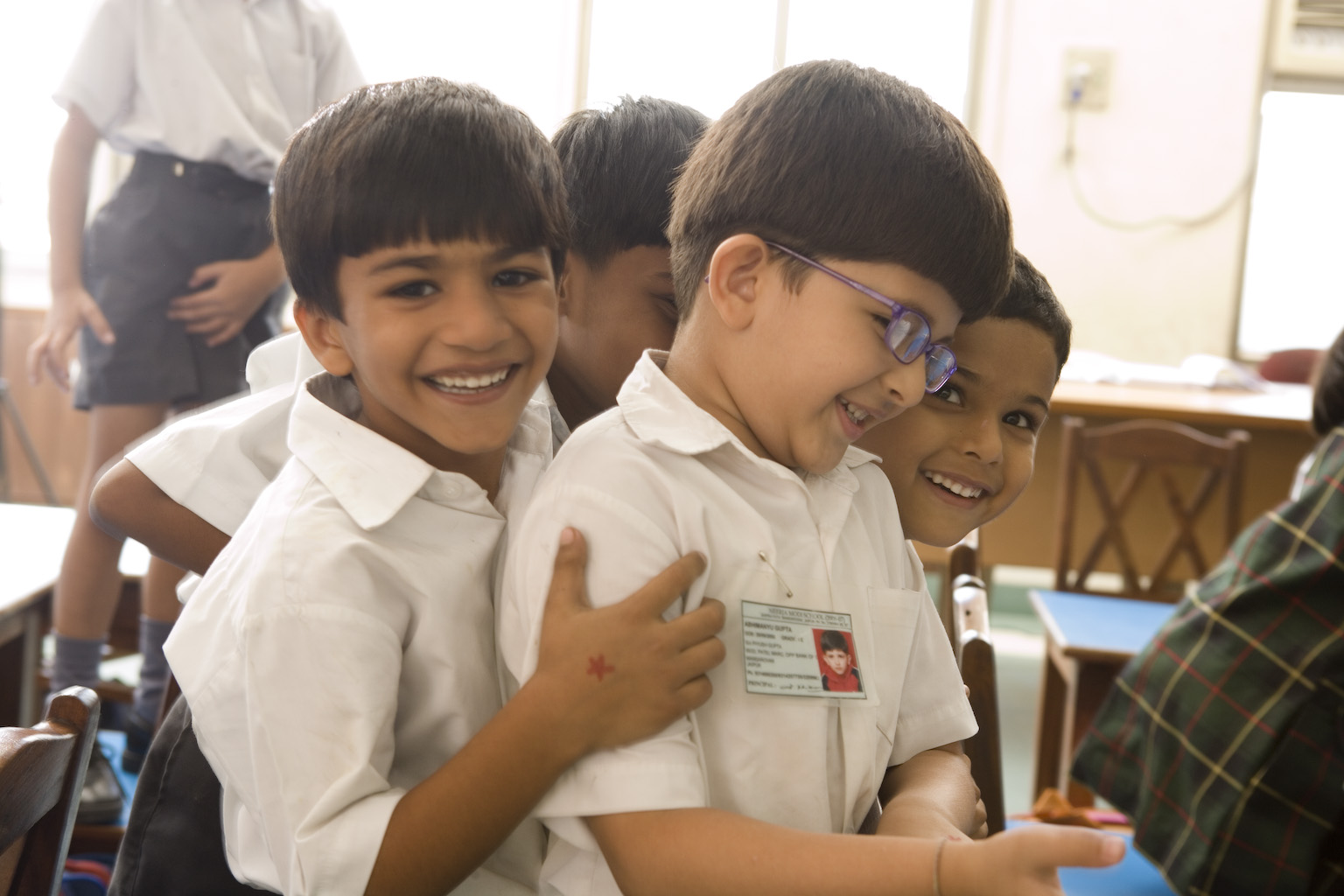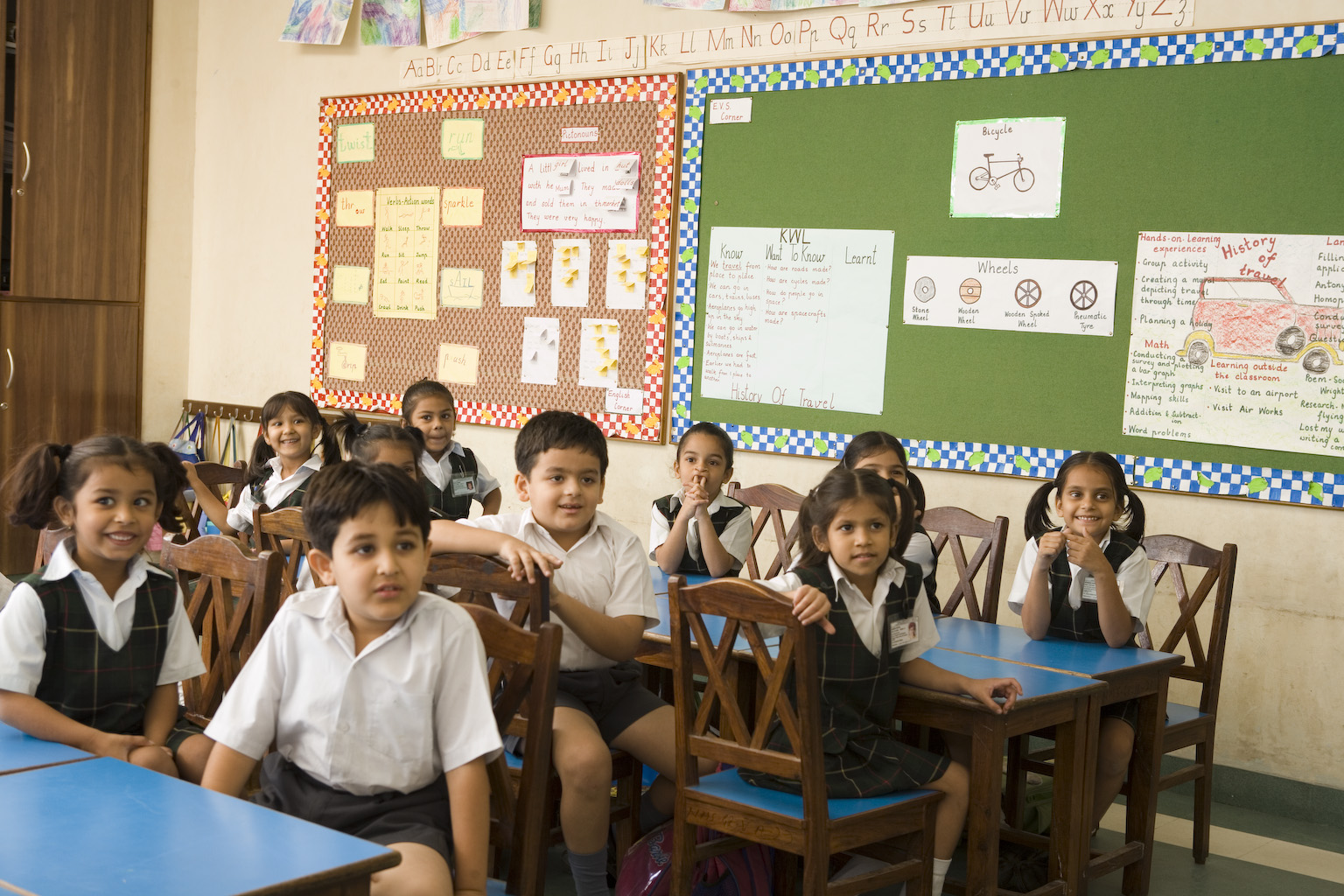The Faculty of the junior school believes that children learn best in a nurturing environment, which is safe, joyful and intellectually challenging. Development and academic considerations shape decisions about the curriculum, organisation and day-to-day life throughout school.
At every age level within the first programme, an interdisciplinary approach to teaching and learning is coupled with special consideration for each child's individual interests and development of community responsibility. Positive feedback given to children based on their own efforts, ideas and accomplishments as well as respectful acceptance of a child's feelings, help first programme youngsters to meet challenges with the persistence and optimism necessary to develop competence, confidence and self-esteem.
THE FIRST PROGRAMME
Following the guidelines established by NMS the teachers have created a curriculum consisting of language arts, environmental studies and mathematics in conjunction with specialists in music, art, science, library and physical education.
LANGUAGE ARTS
NMS's language arts program builds on the children's existing knowledge and rich linguistic experience and focuses on developing an increased competence in the use of the language arts, speaking and listening, reading and writing.
The first to third programme children take time to settle. English being a foreign language, but once settled they quickly take to it through rhymes, story-telling, reading, and recounting experiences.
Early literacy skills are supported as the children are exposed to a variety of literatures. The children are encouraged to keep journals with their own story or group poems. Display boards in classrooms reflect the varied interests of the children, and act as positive re-enforcement, and encouragement from their teachers and their own peer-group. Maximum attention at this stage is to be given to the basic fundamentals of Reading, Writing, Listening and Speaking. Oral Skills form the keystone of the language arch. Vocabulary games give both skill and fun and games.
MATHEMATICS
Mathematics is approached in a developmental sequence, which begins by utilising the children's first hand experience to form the basis of their learning and understanding. The thrust of the programme is on thinking, analysis logical thinking. Problem solving and number relationships are emphasised. Teachers use concrete examples manipulated with the students to help internalise mathematical concepts. At all levels, students work on the four major operations in arithmetic as well as measurement, fractions, two and three-dimensional geometry and estimation. The teachers aim at making children realize the transfer effect of studying Mathematics.
EVS
First programme students go to the laboratory during their weekly schedule to explore, observe, experiment and develop the skills they will need to move into the middle school science programme. First graders study biology, chemistry and physics specifically exploring solids, liquids and gases before moving on to study the human body and then biology. Second graders continue to develop their scientific investigation skills, learning to formulate hypotheses, design experiments and maintain data records as they found on such units as the school ecosystem. Third graders continue to explore chemical, physical and biological phenomena and concentrate on mastering important experimentation skills through a variety of topics such as the properties of matter and the study of the water cycle, water harvesting etc etc.
The Social Studies curriculum is a vehicle for discovery and is designed to help develop the children's understanding of themselves as individuals, as members of various groups within society, and as members of a global community. The first grade program begins with exploring the family unit and then focuses on the wider community including the neighbourhood surroundings of NMS and other city institutions. In the second and third grade the curriculum is designed to provide a conceptual framework for observing different cultures. Computers are used to map out projects and students visit a variety of cultural institutions on field trips during their explorations.
IT
IT curriculum at this stage enables them to stay at par with technological advancements as well as use it as tool to enhance their learning in all areas
THE ARTS
The Art Studio at the first program is an exciting and comfortable place for children, the space designed so that material and tools are easily accessible. As the children build upon their art experiences, they become increasingly familiar with each process, gain in their mastery of technical skills and apply their more advanced knowledge to their individual efforts of creative expression.
The goals of the art curriculum are mastery of skills, accessibility to personal image making independence, global awareness and respect, not only for materials but for each other's work as well.
Drawing & Painting, Classical Dance & Music (Instrumental & Vocal), Folk Dance, Western Music and Musical instruments form an essential part of the Music Programme. Each individual in a class is given full freedom of choice of the form he/she would like to specialise in, and in the process each group/tutorial consists of 5 to 6 children who get very special and focused attention. Parents are kept informed about the child's progress, and from time to time are invited to special shows sponsored by the tutorial. Theatre received special attention being the root of effective communication, expression, graceful and correct movements, rhythm and timing. Operas and plays by the classical and outstanding dramatists are a must for the NMS Drama Society. Experts from Mumbai and the National School of Drama are invited to direct the plays. This directorial venture acts as a workshop for teachers who are interested in Drama, and they in turn raise the level of the imaginative use of the language.
As first program, children have music at least once a week. Movement activities, ringing games and the use of instruments introduce the different elements of music. Students participate in - group singing and sing-a-songs. They are frequently taught special songs related to their classroom work. NMS's first programme chorus for the first third graders will be enjoyed by many students and performed throughout the school year.
PHYSICAL EDUCATION
Physical activity is part of every day life at Neerja Modi School. First Grade students enjoy a curriculum, which includes fall skills, movement education, gymnastics, and team activities. In the second and third grade they are introduced to the skills associated with team sports which include football, hockey, cricket and volleyball, basketball, badminton. NMS's students physical education classes take place on our large 22 acres campus, and are guided by trained coaches.
Fitness is an integral part of the physical education routine. At each level of the first program, students participate in exercise routines armed at increasing their flexibility, upper body strength and cardiovascular endurance. The program develops students' skills so that they can partake in and enjoy games and sports events designed to inculcate sportsmanship, grace and athletic ability.
School strictly implements "NO homework policy" for classes I and II.





